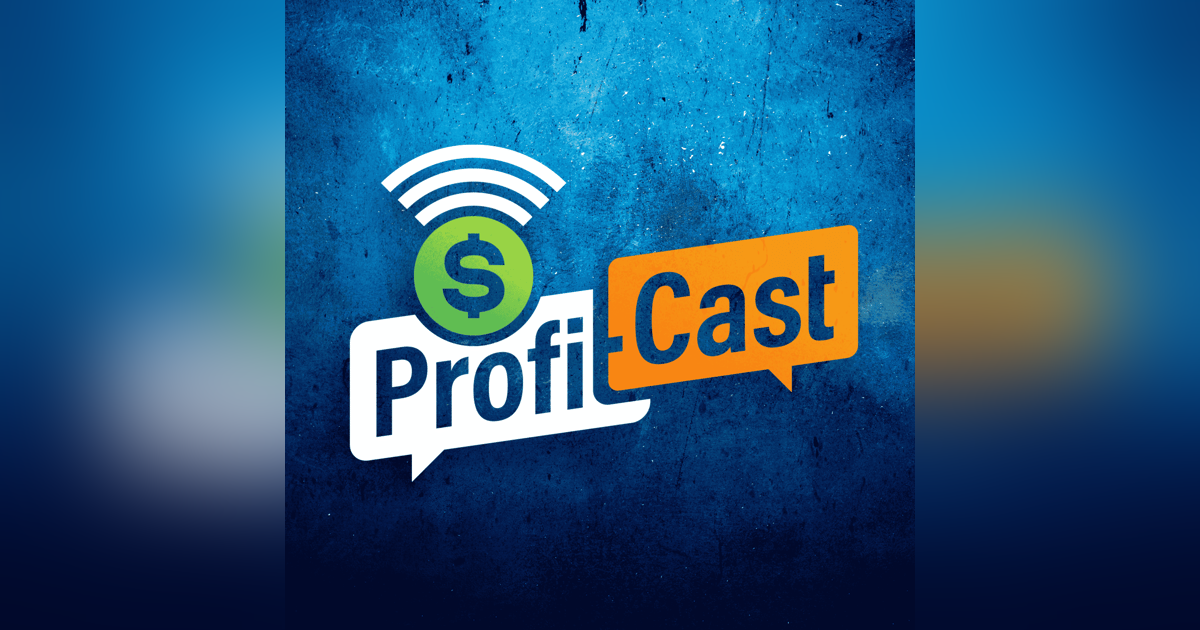69: Make Money with a Podcast PLATFORM | Jessica Kupferman


Welcome to Profitcast! Whether this is your first time trolling the site or you are a regular listener, we are so happy you found us and hope to provide some valuable and entertaining material for you to chew on. This week, The Real Brian is joined by...
Welcome to Profitcast! Whether this is your first time trolling the site or you are a regular listener, we are so happy you found us and hope to provide some valuable and entertaining material for you to chew on. This week, The Real Brian is joined by Jessica Kupferman of She Podcasts and of the more recent Moneycast, which, as it might sound, is a venture dedicated to helping people understand methods of making money through podcasting.
To hear the full story of how Moneycast came about, and Jessica’s discovery shortly thereafter of Profitcast, you’re going to have to listen to the episode. Brian and Jessica have their own takeaways, and they are good takeaways, having to do with looking beyond the numbers and selling your podcast as a product. Several weeks ago, Brian reported some findings he compiled after speaking with a range of potential sponsors and essentially came away believing that in order to make anything work out, he would need 100,000 downloads per episode or more! Jessica challenges this in a very unique way and re-opens the door to an avenue that seemed to have no traction.
Because they cover that side of the discussion so well, I want to supplement their discussion by looking at it through an economic lens. On the surface, the competition between Moneycast and Profticast almost seems relational. Two podcasts started within 12-18 months of one another (sorry, don’t have the exact number) and dedicated to nearly the same goal have what appear to be a vested interested in attracting the same listener base. With two podcasts of the same premise, would you not end up sticking with the podcast whose host you subjectively determine to be more entertaining/appealing/interesting/[insert adjective]?
Jessica and Brian are very open and frank about their approach to learning of each other, and of the other’s respective podcast. Jessica admits that she didn’t know Brian’s podcast existed until after she launched, but had a very similar drive and motivation for providing podcasters with material that would help them make money doing what they loved doing. As difficult as it is to be first these days with a podcasting idea, it’s even harder to thoroughly understand the scope of the pool that we’re diving into with a new podcast. It would shock me to learn that Jessica is the first one to experience this sort of situation.
Competition stabilizes capitalism. The classic idea of monopoly, the single entity controlling the supply of a product or service, doesn’t really exist anymore. Monopolies in modern society influence price and supply, making it difficult, but not impossible, for new players to enter the scene. Competition, healthy competition, or as some might call it, “perfect competition”, is that Economics 101 mantra: “when supply meets demand” and the market determines the price.
The relationship that this classic economic model has to podcasting isn’t as cut and dry as McDonald’s and Burger King, or Verizon and AT&T. But competition exists across many genres of podcasting, and most, I would argue, exist in a healthy way. The playing field is so large that the even the potential for a monopoly, as we might consider Google to be, seems impossible. Perhaps if you divide the playing field into enough sub sections it’s easier to see directly how podcasts compete for the same listeners, such as Jessica and Brian, but particularly when it comes to monetizing a podcast it feels like the focus on competition within a niche is misplaced.
And it all has to do with Jessica’s argument for developing and pitching a podcast platform to sponsors rather than trying to fit your podcast into the cookie-cutter mold of ABC Company’s sales parameters. The competition we face in monetizing our podcasts isn’t other podcasts, it is the corporate marketplace we’re engaged in and the lack of knowledge concerning the engagement of what is, more or less, our own “customer base”. I hate to call listeners or members of our communities “customers”, but potential sponsors see them as such…and that’s half the problem.
After this episode of Profitcast and Moneycast, I’m inclined to believe that a joint effort and committed approach to changing the way sponsors see podcasts as worthwhile advertising investments is well worth the existence of both podcasts. In the words of Dr. Seuss, which I feel like I’m quoting increasingly more often: “There is no one alive who is Youer than You.” No one can host a podcast the way YOU host it. No one is YOU. By that understanding alone, Profitcast and Moneycast are not going to produce the same content.
When the model changes, likely this theory will change as well. But for now Jessica and Brian establish a very intriguing foundation from which we must build our podcasting ventures off of if we hope to make money doing it. The way the market is now, there is enough competition between podcasts that merely existing will provide you with the success you seek or desire. It’ll take hard work, it’ll take commitment, but it’s not out of reach. Just be YOU!
Links!























